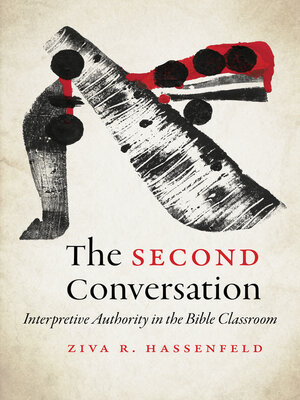The Second Conversation
ebook ∣ Interpretive Authority in the Bible Classroom · Mandel-Brandeis Series in Jewish Education
By Ziva R. Hassenfeld

Sign up to save your library
With an OverDrive account, you can save your favorite libraries for at-a-glance information about availability. Find out more about OverDrive accounts.
Find this title in Libby, the library reading app by OverDrive.



Search for a digital library with this title
Title found at these libraries:
| Library Name | Distance |
|---|---|
| Loading... |
A teacher reflects on her teaching practice, bringing literacy scholarship into the arena of Jewish education.
In The Second Conversation, university professor Ziva R. Hassenfeld returns to the middle school classroom to study her own seventh grade Bible class. The book explores dilemmas of practice she encountered around interpretive authority in the classroom. She analyzes the questions that came up in her teaching within the context of the most influential religious education scholarship, literacy scholarship, sociocultural theory and literary theory. She highlights the importance of two conversations about interpretive rules within the classroom, the first about the text's meaning, and the second about competing conventions for determining its meaning. Instructors of any type of literature will benefit from Hassenfeld's study, which offers rich ideas about when and how teachers enforce a classroom's way of reading or follow a student's line of inquiry toward more flexible interpretation.
In The Second Conversation, university professor Ziva R. Hassenfeld returns to the middle school classroom to study her own seventh grade Bible class. The book explores dilemmas of practice she encountered around interpretive authority in the classroom. She analyzes the questions that came up in her teaching within the context of the most influential religious education scholarship, literacy scholarship, sociocultural theory and literary theory. She highlights the importance of two conversations about interpretive rules within the classroom, the first about the text's meaning, and the second about competing conventions for determining its meaning. Instructors of any type of literature will benefit from Hassenfeld's study, which offers rich ideas about when and how teachers enforce a classroom's way of reading or follow a student's line of inquiry toward more flexible interpretation.







